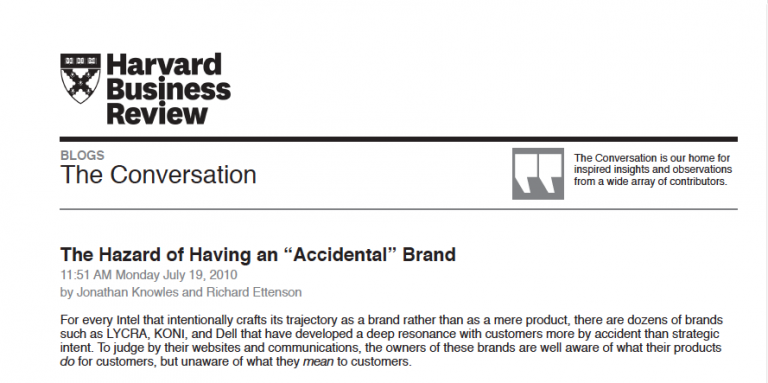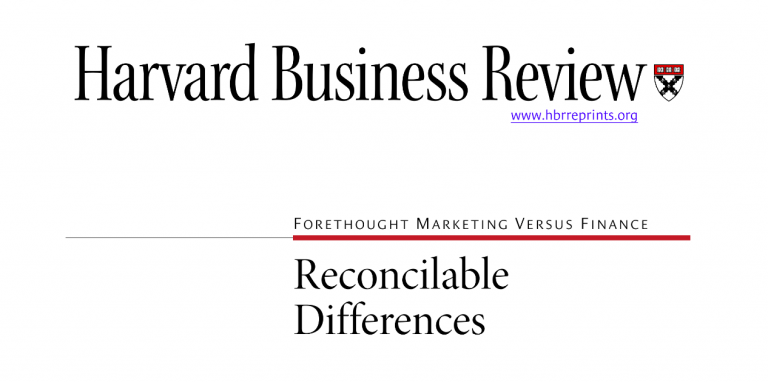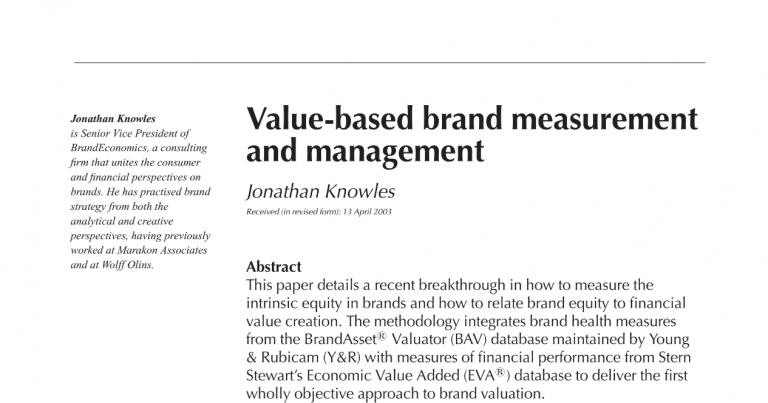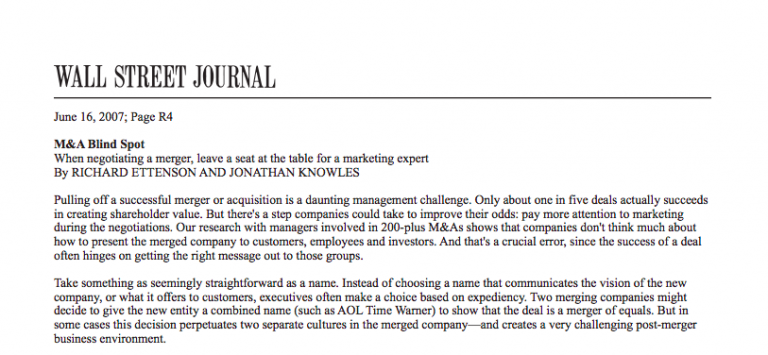Jonathan Knowles is the coauthor of five articles in the Harvard Business Review and fifteen in the MIT Sloan Management Review (nine of which form “The Strategy of Change” series). His articles have also appeared in The Wall Street Journal, the Marketing Strategy Journal, the Review of Marketing Research, the Journal of Interactive Marketing, Professional Investor, Intellectual Asset Management, The Marketing Journal and the AMA’s Marketing Management.
He has coauthored chapters on “The Marketing Implications of Financial Accounting” (2021) and “Orientation and Marketing Metrics” (2009), as well as a Marketing Science Institute working paper on “The Value Implications of Corporate Branding in Mergers” (2011).
He has collaborated on commissioned reports by LinkedIn’s B2B Institute (“The Three Drivers of Financial Value” 2024) and the Association of National Advertisers (“Marketing Impact Measurement Study” 2024 and “How Strong Brands Impact Financial Value” 2014).
He is coauthor of the book “Vulcans, Earthlings & Marketing ROI” (Wilfrid Laurier University Press, 2008) and “The Ultimate CMO Guide to Beat Budget Hell” (Vicomte, 2025).
His writing focuses on three main topics – business strategy (especially the role of purpose, reputation, and brand in value creation); mergers (intangible assets, post merger integration, brand architecture); and performance measurement (accounting for marketing, brand valuation).
Filter by subject
Article Measurement

Our commentary about how companies with strong science or engineering prowess may misunderstand the true basis for their brands. Customers only care about your technology to the extent that it enables them to achieve their outcomes!
Article Measurement

My explanation of the multiple definitions of “brand” and the circumstances in which each definition is relevant.
Article Measurement

Marketing and Finance have a famously fractious relationship, but each is a source of vital insight. Marketing illuminates the task of value creation while Finance illuminates the task of value capture. Together they form the basis for sustainable business success.
Article Measurement

This article review the findings from the integration of the Stern Stewart database on corporate performance with the Y&R database on brand strength. Together they reveal the extent to corporate valuation is a reflection of current financial performance and brand equity (serving as the proxy for anticipated future financial performance).
Article Mergers

Only about one in five merger transactions actually creates shareholder value. We argue that marketing’s focus on value creation is a vital ingredient to a process that is currently focused too heavily on the things that might cause the deal to fail, rather than the things that will make it succeed.